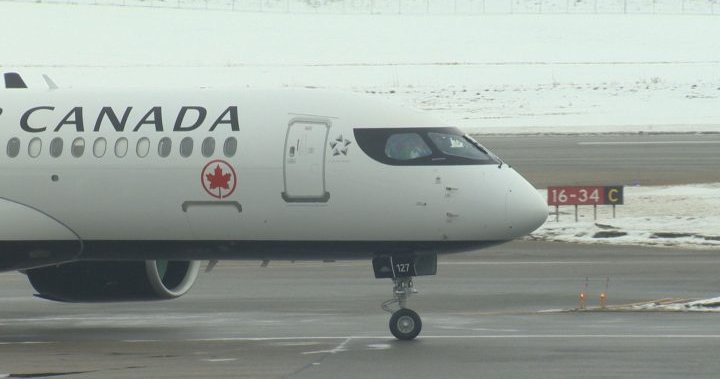Working with International travellers navigating COVID-19 protocols, testing requirements, and quarantine plans is tough, says the airport director at Kelowna International Airport.
“Right now it’s a mess. It’s very difficult for the traveling public,” said Sam Samaddar.
Read more:
‘It gets worse and worse every year’: Truckers rally in B.C., citing unsafe highway conditions
The airport is calling on the federal government to review COVID-19 protocols for international travel.
“Why do you need to test passengers arriving on international flights when they’ve already been tested before they board the flight?,” said Samaddar.
He wonders why the federal government is seemingly wasting COVID-19 tests on international arrivals while winding down community testing inside the country.
“We have this domestic need where we don’t have enough testing available in the community,” said Samaddar.
Global News has heard from air travelers that international COVID-19 protocols have also deterred them from flying internationally.
“We started this process to go to Punta Cana back in July hoping this would be all over with and it’s just snowballed more. I canceled that trip,” said Terry Marshak, a passenger at YLW.
An open letter from the chief medical officers of Air Canada, Toronto Pearson Airport and WestJet asks government officials to shift PCR testing from airports into communities.
“In the most recent week of reported data, over 123,000 PCR tests were conducted at Canada’s airports with an average positivity rate of three per cent. Meanwhile, the positivity rate in our communities is now approximately 30 per cent and could be higher due to the under-reporting of positivity from a lack of tests,” states the letter.
“We need to ensure Canada’s limited testing resources are being used where Canadians need them most—to support our communities, schools, hospitals and long-term care homes.”
Samaddar said he’s reached out to the federal government numerous times but has not received a reply so far.









More Stories
Confidence levels taking a hit as costs rise for local Saskatchewan businesses | Globalnews.ca
Winnipeg dental program serving inner-city youth marks 25 years – Winnipeg | Globalnews.ca
Powerful tornado tears across Nebraska, weather service warns of ‘catastrophic’ damage